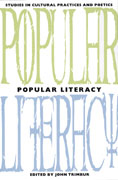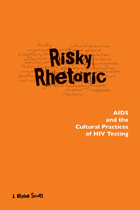
Feminine Feminists was first published in 1994. Minnesota Archive Editions uses digital technology to make long-unavailable books once again accessible, and are published unaltered from the original University of Minnesota Press editions.
What does it mean to be a woman today in Italy, a country with the lowest birthrate in the world and the heaviest maternal stereotype? Does being a feminist exclude practices of cultural femininity? What are Italian women's cultural productions? These questions are at the center of this volume, which looks at how feminism and femininity are embedded in a broad spectrum of Italian cultural practices.
In recent years, several books have introduced the American public to Italian women's voices. This volume goes beyond others in its range of theoretical topics and modes, considering cultural practices not only in their popular, material appearance, but also in the disciplines and forms of knowledge that order information and circumscribe behavior.The essays, all by well-known scholars in Italian studies, reflect the authors' specific critical interests in cinema, fashion, literary texts, feminist theory, and popular culture, past and present. Some address the culture of everyday life, while others examine feminism and femininity in the context of philosophy, ethics, or national identity within a global culture. Some begin with the conviction that performing "femininity"—whether in appearance or in nurturing practices—can be culturally liberating. Others put this notion to the critical test. By situating the problem of femininity within the discussion of feminism, this volume takes on larger issues within feminist discourse. Its bold examination of the component of femininity within the context of women's experiences offers readers rare insight into Italian women's culture and into the multicultural possibilities of feminism.Contributors: Beverly Allen,
Serena Anderlini-D'Onofrio, Lucia Chiavola Birnbaum, Renate Holub, Carol Lazzaro-Weis, Maria Marotti, Áine O'Healy, Graziella Parati, Eugenia Paulicelli, Robin Pickering-Iazzi, Maurizio Viano.Giovanna Miceli Jeffries is a lecturer in the department of French and Italian at the University of Wisconsin, Madison.


A key interdisciplinary concept in our understanding of social interaction across creative and cultural practices, kinesthetic empathy describes the ability to experience empathy merely by observing the movements of another human being. Encouraging readers to sidestep the methodological and disciplinary boundaries associated with the arts and sciences, Kinesthetic Empathy in Creative and Cultural Practices offers innovative and critical perspectives on topics ranging from art to sport, film to physical therapy.

From the work of medieval spiritualist Margery Kempe and John Foxes’ Book of Martyrs to nineteenth century American scrapbooks, Mexican ex-votos, and Italian-American cookbooks, the essays in Popular Literacy examine acts of reading, writing, and speaking that take place at the margins of official, institutionalized literacy.
The contributors explore these noncanonical, unschooled, and unauthorized acts in order to explore how people make literacy popular by using whatever means of communication is at hand, to their own ends. The essays treat a range of topics, agents, and historical settings, and the contributors use a variety of theoretical frameworks and methods from a number of fields: ethnography, American studies, history, literary criticism, science studies, rhetoric, and writing studies.
The chapters examine particularly revealing historical moments and cultural conjunctures where instances of popular literacy take place in uneasy relation to the dominant institutions—the church, the state, the schools, the market. The contributors show that while the practices of popular literacy are never free from these influences, neither are they altogether encapsulated by them.
Taken as a whole, the essays are loosely aligned in a common project to study the ways ordinary (and extraordinary) readers, speakers, and writers use literacy to articulate identities and social aspirations, to produce alternative forms of cultural knowledge, and to cope with the asymmetries of power that regulate cultural life.

Risky Rhetoric: AIDS and the Cultural Practices of HIV Testing is the first book-length study of the rhetoric inherent in and surrounding HIV testing. In addition to providing a history of HIV testing in the United States from 1985 to the present, J. Blake Scott explains how faulty arguments about testing’s power and effects have promoted unresponsive and even dangerous testing practices for so-called healthy subjects as well as those deemed risky.A new afterword to the paperback edition discusses changes in testing technology, treatments, and public health responses in the last ten years. The ultimate goal of Risky Rhetoric is to offer strategies to policy makers, HIV educators and test counselors, and other rhetors for developing more responsive and egalitarian testing-related rhetorics and practices.
READERS
Browse our collection.
PUBLISHERS
See BiblioVault's publisher services.
STUDENT SERVICES
Files for college accessibility offices.
UChicago Accessibility Resources
home | accessibility | search | about | contact us
BiblioVault ® 2001 - 2024
The University of Chicago Press









